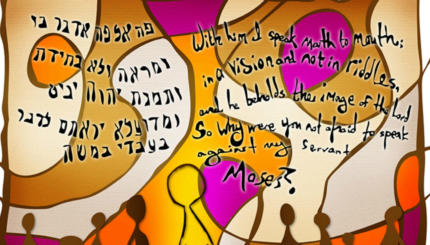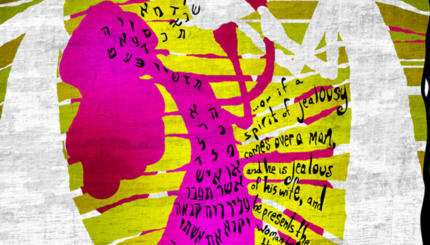Commentary on Parashat Emor, Leviticus 21:1-24:23
The Jewish calendar is a sacred tether to God. The agricultural rites associated with the major Jewish festivals — Passover, Shavuot and Sukkot — are delineated three times in the Torah — in Exodus, Leviticus and Deuteronomy. Each occasion is a call to stand before God with an appreciative heart and hands full of bounty.
The description of the festivals in Parashat Emor contain a unique reminder that the Jewish calendar is also a sacred tether to community. The description of the holidays in this Torah portion is interrupted by the injunction to take care of the poor. In Leviticus 23:22 we read:
And when you reap the harvest of your land, you shall not reap all the way to the edges of your field, or gather the gleanings of your harvest; you shall leave them for the poor and the stranger: I the LORD am your God.
The placement of this commandment is noteworthy not only because a carbon copy of this verse can be found just a few chapters before, in Leviticus 19:9. But also because the injunction to help the poor is flanked on one side by mention of the spring festivals, Passover and Shavuot, and on the other by the autumn festivals, Rosh Hashanah, Yom Kippur and Sukkot.

Help us keep Jewish knowledge accessible to millions of people around the world.
Your donation to My Jewish Learning fuels endless journeys of Jewish discovery. With your help, My Jewish Learning can continue to provide nonstop opportunities for learning, connection and growth.
The Torah commentators infer from the unusual placement that giving charity is not just part of the observance of the festivals, but paramount to it. In the Midrash, we read about an astounding comparison between caring for the poor and building the Holy Temple:
… he who leaves the gleanings, the forgotten sheaf and the corner of the field to the poor as it ought to be, is regarded as though he had built the Temple and offered his sacrifices therein.
Why such a grand reward for proper observance of this mitzvah? Because the Torah recognizes human nature. Surely after investing time and resources in growing crops, the farmer would be inclined to reap and hoard. The Torah then reiterates the commandment so that the farmer sees that caring for the needy is actually a more sound investment
Sforno, the 16th-century Italian commentator, makes this point explicitly:
…the only way to ensure that one does not lose one’s own money is by engaging liberally in handing out charity to the deserving. The legislation in our verse then is this insurance for the farmer not to lose his crop even after he has already brought it into the barn.
Today, Jewish festival observances are no longer expressed through agricultural rites. But the obligation to share our bounty with the needy still applies. As Maimonides taught:
When a person eats and drinks in celebration of a festival, he is obligated to feed converts, orphans, widows, and others who are destitute and poor. In contrast, a person who locks the gates of his courtyard and eats and drinks with his children and his wife, without feeding the poor and the embittered, is not indulging in rejoicing associated with a mitzvah, but rather the rejoicing of his gut …This rejoicing is a disgrace.
Even while enjoying bagged babkas and jarred gefilte fish, we should remember that the holidays are intended to reinforce two sacred connections: to the source of our blessings as well as to those who depend upon us to share.
Read this Torah portion, Leviticus 21:1 – 24:23 on Sefaria
Sign up for our “Guide to Torah Study” email series and we’ll guide you through everything you need to know, from explanations of the major texts to commentaries to learning methods and more.
Subscribe to A Daily Dose of Talmud: Daf Yomi for Everyone — every day, you’ll receive an email that offers an insight from each page of the current tractate of the Talmud. Join us!
About the Author: Rabbi Danielle Upbin teaches widely on Jewish spirituality, meditation and yoga. She is also the associate rabbi and prayer leader at Congregation Beth Shalom in Clearwater, Florida. Her musical release, “Reveal the Light,” is available on Amazon, iTunes, and Spotify or through her website, danielleupbin.com.



